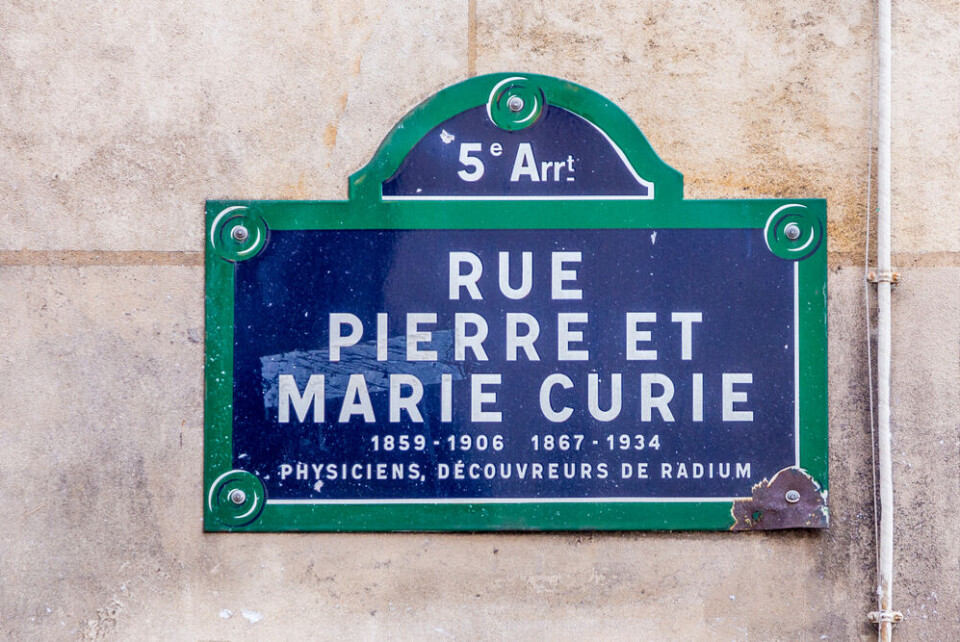-
How Lyon death is reshaping French politics ahead of 2027 elections
Columnist Simon Heffer says the killing of far-right student activist Quentin Deranque will have reverberations around Europe
-
Tipping in France: Are card machine tip requests going too far?
Payment terminals increasingly ask if customers want to pay an extra amount
-
The chaos on France's ski slopes is so sad, says retired instructor
Reader says she refused to teach children not wearing safety gear
When naming places and streets, France should honour women too
Only 2% of France’s 63,500 place names honour women. Samantha David looks at why women’s role in human history is still underestimated

Josephine Baker’s entry into the Panthéon in December was big news. Suddenly everyone remembers her fabulous career, her rainbow family and her heroic World War Two activities, and town councils are scrambling to name squares and boulevards after her.
Floirac, on the outskirts of Bordeaux, has just inaugurated the Square Joséphine Baker, and I could not be more thrilled.
It is shocking that only 6% of places named in honour of a person refer to women. Overall, only a woeful 2% of France’s 63,500 place names honour women. Believe it or not, there are more places named after Pierre Curie than his more famous wife, Marie. At the last count there were 49 streets named after Joan of Arc, 39 after aviatrix Hélène Boucher, 37 after George Sand, and only seven after Simone Weil.
For context, let us look at the men. Some 3,903 streets are named after Charles de Gaulle, 3,354 after Louis Pasteur, 2,555 after Victor Hugo, 2,370 after Jean Jaurès, 2,215 after Jean Moulin, and 1,501 after Léon Gambetta. Quite a difference!
Read more: US-born French icon Josephine Baker to enter France’s Pantheon
It is not just street names either. Paris’s metro stations are also predominantly male, although thankfully this is changing with the inauguration in January of two new ones on line 4 called Barbara, after the singer, and Lucie Aubrac, after the World War Two resistance fighter. It is about time that at least 50% of them celebrated famous women.
Why is this important?
Because blotting women out of history undermines the huge contributions they have made. Violette Szabo and Jean Moulin both died at the hands of the Nazis. Their courage, commitment and contributions were arguably equal. So how come he gets 2,215 place names and she gets only two?
People need to know that throughout history women have also been pioneers in politics, maths, physics, medicine, philosophy, aviation, engineering and any other field you care to mention. When their stories are brushed under the carpet, each new generation of women feels like it has to reinvent the wheel.
It is no use bemoaning that only 5% of French pilots are female if there are hardly any streets named after Marie Marvingt, Hélène Boucher or Maryse Bastié (look them up!).
Did you know there is a playground in Saint-Denis named after Zinedine Zidane? But nothing in honour of the aerobatics champion Mélanie Astles. It is completely unbalanced.
The same goes for people of colour. How come there are only two black men in the Panthéon? Why is Joséphine Baker the only woman of colour in there?
So I am pleased that President Macron is making an effort to finally redress the balance.
Joséphine Baker’s entry to the Panthéon and the two new metro stations are wonderful. Let us cross our fingers that it does not stop there.
Related stories:
New square in Monaco marks Joséphine Baker’s links with Princess Grace
French-British snowboarder Charlotte Banks aims for Olympic success
From poverty to glory: Life of legendary French singer Edith Piaf
























